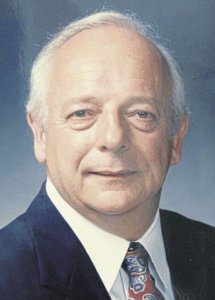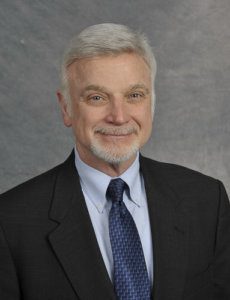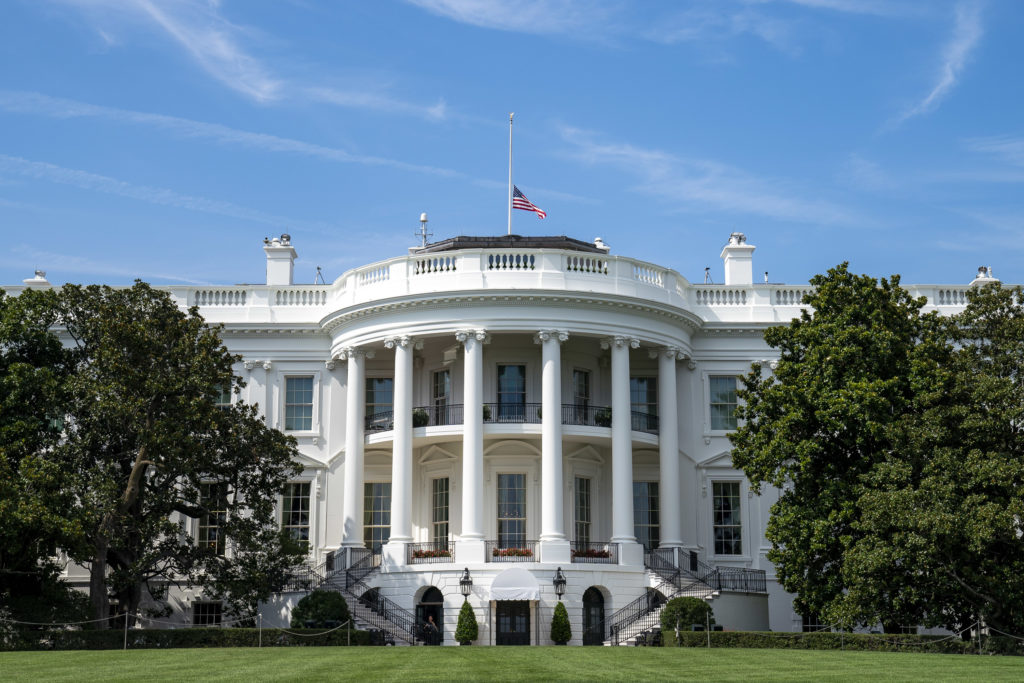
Planning on shopping for the holidays, union member? Why not get paid for it?
Sign up for the Union Plus Cash Back Program and start earning cash back when you shop
online!
Plus, nab a $15 welcome bonus from BeFrugal when you join.
This is for all News Pages

Planning on shopping for the holidays, union member? Why not get paid for it?
Sign up for the Union Plus Cash Back Program and start earning cash back when you shop
online!
Plus, nab a $15 welcome bonus from BeFrugal when you join.
Enrollment for Medicare Parts A and B is mandatory for retirees, surviving spouses, and dependents receiving a health service card.
If you or your spouse are eligible to enroll in both Medicare Parts A and B by virtue of age or disability, then you are required to enroll.
Failure to enroll will result in a penalty and potentially a loss of health care benefits.
The initial enrollment period for Medicare Part B begins three months before your 65th birthday including the month you turn 65, and ends three months after that birthday. 
In the case of a disability benefit, you are required to enroll 24 months after the date you are determined to be disabled.
If you do not enroll in Medicare Part B during your initial enrollment period, you have another chance each year to sign up during a “general or open enrollment period.”
Your coverage begins the following July.
However, your monthly premium increases by ten percent for each twelve-month period you were eligible for but did not enroll in Medicare Part B.
All individuals who meet the criteria described above are required to enroll.
If you have any questions, please contact the UMWA Health & Retirement Funds at 800-291-1425.
Visit Medicare.gov for more information.

Union Plus connects you with Farmers Insurance Choice SM where you can compare auto and home insurance quotes from top companies all in one place and choose the policies that may be right for you.
Disclaimer: Message produced and initiated by Union Privilege, 1100 First Street, NE, Suite 850, Washington, DC 20002. CA license #0E89960; NY license #1058096. Farmers Insurance Choice is used by agents, like Farmers General Insurance Agency, Inc. (CA License #0D25399) to provide a choice of providers, not just Farmers GroupSelect companies. Insurance is underwritten by Farmers Property and Casualty Insurance or certain of its affiliates: Economy Fire & Casualty Company, Economy Preferred Insurance Company, Farmers Casualty Insurance Company, Farmers Direct Property and Casualty Insurance Company, Farmers Group Property and Casualty Insurance Company, or Farmers Lloyds Insurance Company of Texas, all with administrative home offices in Warwick, RI. List of licenses at www.farmers.com. Coverage, rates, discounts, and policy features vary by state and product and are available in most states to those who qualify. © 2022 Union Privilege, Inc., provider of Union Plus benefits
Source: MetroNews
CHARLESTON, W.Va. — Jim Bowen was a legend, a friend and a mentor to those who knew him. The former president of the West Virginia AFL-CIO stood up for the state’s working class until he neared his final days.
“His whole entire life was not about himself. It was about other people,” United Mine Workers of America President Cecil Roberts told MetroNews.
Roberts was among West Virginia’s organized labor community to join together Sunday afternoon in a Celebration of Life ceremony to honor Bowen at the Four Points Sheraton in downtown Charleston.
Bowen died Sept. 26 in Florida at the age of 87.
Roberts said Bowen made a difference by turning bad jobs into good jobs while sticking up for West Virginia’s coal miners.
“He turned unsafe jobs into safe jobs, unhealthy jobs into healthy jobs,” he said. “He just loved being with coal miners. Our fight was his fight.”
Bowen served as WV AFL-CIO president from 1997-2004. During those years he was a fixture at the state Capitol and lobbied on behalf of labor issues. His most notable fight during those years involved the 2003 battle to reform the state’s beleaguered Workers Compensation program.
Roberts said Bowen would attend every UMWA convention after he retired.
“I’ve lost somebody that always spoke highly of me, defended me and lifted me up with his words and actions and those kinds of people are difficult to find in your life,” Roberts said.
Bowen was also a longtime leader and member of the United Steelworkers of America. He became best known as part of the negotiating team during the Steelworkers’ labor dispute with Ravenswood Aluminum in the early 1990s. The nearly two-year dispute was a watershed moment of organized labor in the state and Bowen was one of the union’s negotiators who helped forge an agreement which ended the dispute.
State Senator Mike Caputo (D-Marion) serves as the vice president of the West Virginia AFL-CIO and as a longtime UMWA representative. Caputo considered Bowen a close friend.
“He always used to say I have a special interest and that’s people. That was Jim. I learned and grew from him. We became best friends, played cards together and went to dinner together,” Caputo said.
Caputo lead Sunday’s ceremony, at Bowen’s request.
“I was honored when his widow told me that he left in his wishes that I emcee his Celebration of Life. I hope I can get through that okay,” Caputo told MetroNews at the beginning of the event. “I’m just honored to have known him.”
U.S. Senator Joe Manchin (D-W.Va.) also stopped by Sunday to show his support and said Bowen always contacted him to make sure West Virginia’s working class was top of mind on Capitol Hill.
“Jim was for everybody. Jim would call me and say ‘Joe, can you help this person or help that person?’ It was always helping somebody,” Manchin said. “Jim was not only a mentor. Jim was a good man.”

Margie Kacsmar has been an associate member of the UMWA for almost 20 years and is the wife of Local Union 6362 and District 31 member Tom Kacsmar. Margie has attended many rallies over the years including St. Louis, Missouri; Charleston, WV; Columbus, Ohio and Washington, DC.
Margie has been an arrestee twice in support of all UMWA retirees and their fight for lifetime healthcare and pensions. Sister Margie has attended many conventions to include Miami, Florida; St. Louis, Missouri and several in Las Vegas, Nevada. She attends local UMWA functions like Labor Day and others.
When asked what being an associate member meant to her, Margie said she loves being there to support her UMWA brothers and sisters in whatever way she can, and that being an associate member makes her feel like she is part of a family.
“Everyone is so nice and welcoming in the UMWA,” said Margie. “I have enjoyed all of the things that I have had the privilege of being a part of. I’m glad I’ve been able to support my husband in every struggle there has been, as well as everyone that is part of the UMWA family.”
Eyeing the latest device? How about earning some extra $$$ with your new purchase? For a limited time, union members have that option!
Learn how union members can get $100 in credits when you buy a new smartphone on a qualifying installment plan with an eligible AT&T wireless plan.
Plus, members can bundle this deal with the monthly savings for the AT&T Signature Program to super-stack their savings Don’t miss your chance to save through October 31.
Ends 10/31/2022. Avail. only to UNION members enrolled in AT&T Signature Program. Req’s port-in of new line & 0% APR 36-mo. installment agmt. Well-qualified customers only. $10/mo. credit for 10 mos. starts w/in 3 bills. If svc cancelled, credits stop & device balance due. Credit card may be req’d (except MA, PA, ND). Add’l fees, taxes & other charges, & restr’s apply. See att.com/unionstrong for details.

The Mine Safety and Health Administration (MSHA), the agency tasked with enforcing mandatory safety and health standards for all mines in the US, has recently developed an app for iPhone and Android phones that will help get timely information directly to miners and members of the mining community. The app allows miners to easily use the tool at mine sites and outside of working hours to search for best safety and health practices and find resources on understanding their rights and responsibilities under the Federal Mine Safety and Health Act of 1977. The app also sends users notifications of mining accidents and how to prevent them.
“Miners nationwide can now access important safety and health and miners’ rights information in the palm of their hands,” said Assistant Secretary of Labor for Mine Safety and Health Chris Williamson. “This new, innovative tool is another technical and educational resource to empower miners and help them play active roles in mine safety and health; even so, the Mine Act is clear that mine operators have the primary responsibility to maintain safe and healthy working conditions and provide regular and thorough training to miners.”
The app is available free and can be found by clicking Android or iPhone and can also be found at the respective app stores by searching for “Miner Safety & Health.”
More information is available at www.MSHA.gov/MinerApp
SOURCE: AP
DATE: 8/12/2022
AUTHOR:
CHARLESTON, W.Va. (AP) — The sprawling economic package passed by the U.S. Senate this week has a certain West Virginia flavor.
The package, passed with no Republican votes, could be read largely as an effort to help West Virginia look to the future without turning away entirely from its roots.
The bill contains billions in incentives for clean energy — while also offering renewed support for traditional fuel sources such as coal and natural gas — as well as big boosts for national parks and health care for low-income people and coal miners with black lung disease. That’s no accident. Most provisions were included as the price the Democrats had to pay to win the all-important support of Sen. Joe Manchin of West Virginia, who says they will help folks back home.
John Palmer, a 67-year-old retired coal miner from Monongah, says it’s about time.
“We ain’t had too many people care about us,” Palmer said. “We’re always out there fighting for different things. Everybody’s got an agenda, and our agenda was for working-class people. That’s what everybody’s agenda should be, but it’s not.”
Manchin, a conservative Democrat who chairs the Senate Energy and Natural Resources Committee, was a key vote needed to pass the spending package in the 50-50 Senate and send it to the House, where lawmakers are expected to take it up Friday.
The bill invests nearly $375 billion to fight climate change, caps prescription drug costs at $2,000 out-of-pocket for Medicare recipients and helps an estimated 13 million Americans pay for health insurance by extending subsidies provided during the coronavirus pandemic.
If those subsidies are not extended, West Virginia is among the states that will lose the most support for people paying for health insurance, according to the Urban Institute, meaning thousands of people could lose coverage.
Kelly Allen, executive director of the West Virginia Center on Budget and Policy, said the provision in the bill to cap insulin prices at $35 a dose for seniors will make a big impact in the state, which has the greatest number of people living with diabetes per capita in the country.
“There are people who ration insulin, or who have to make decisions between getting groceries and paying for a drug cost, or paying rent and paying for drug costs,” she said.
But Manchin, who has received more campaign contributions this election cycle from natural gas pipeline companies than any other lawmaker, won concessions on the climate front. The bill includes money to encourage alternative energy and to bolster fossil fuels with steps such as subsidies for technology that reduces carbon emissions. It also requires the government to open more federal land and waters to oil drilling.
In a statement, Manchin said he worked with colleagues to craft the “most effective way” to help West Virginia. He declined to be interviewed for this story.
Manchin also has proposed a separate list of legislation to speed up federal permitting and make energy projects harder to block under federal acts. As part of an agreement with Democratic leadership, he specifically asked that federal agencies “take all necessary actions” to streamline completion of the Mountain Valley Pipeline, a project long opposed by environmental activists.
The 303-mile (487-kilometer) pipeline, which is mostly finished, would transport natural gas drilled from the Appalachian Basin through West Virginia and Virginia. Legal battles have delayed completion by nearly four years and doubled the pipeline’s cost, now estimated at $6.6 billion.
Chelsea Barnes, legislative director for Appalachian Voices, an environmental organization that sued to stop the pipeline, said there’s a lot to be excited about in the legislation. But she deemed Manchin’s concessions to the fossil fuel industry “unacceptable.”
“We’d really love to just be celebrating,” Barnes said, “but we know that there’s so much in the bill that is also going to hurt communities.”
Barnes said the bill contains many provisions her organization has wanted for a long time, such as extending and increasing tax credits for clean energy projects, with bonus credits for low-income communities and for communities where a coal mine or power plant has closed.
That means there’s going to be a higher incentive for clean energy developers to set up shop in Appalachia. She said many people she’s worked with on clean energy projects are not excited to see coal jobs disappear but are excited to be part of “the energy economy of the future.”
“They like the idea of retaining that energy-producing heritage, and I think there’s a lot of pride in continuing that role in our society, in our culture,” she said.
Still, she’s concerned about support for carbon sequestration and storage projects in the bill, saying they haven’t been cost-effective compared with clean energy alternatives. She fears that might prolong the life of power plants.
She also said permitting reform in the bill amounts to “permitting destruction” that would damage the environmental review process and silence residents’ voices.
The bill also contains millions of dollars for tourism, long seen in West Virginia as a way to boost the state’s beleaguered economy. West Virginia is home to multiple national parks, including the New River Gorge National Park and Preserve, which opened in 2020.
The National Park System would receive at least $1 billion in the package to hire new employees and carry out projects to conserve and protect wilderness areas.
The bill also permanently extends the excise tax on coal that pays for monthly benefits for coal miners with black lung disease, which is caused by inhaling coal dust.
Since the program’s inception, more retired miners in West Virginia have received black lung benefits than any other state, with 4,423 people receiving benefits last year. But the fund is $6 billion in debt.
For decades, the tax has required annual legislative approval. Twice in recent years, federal lawmakers failed to extend the tax, most recently for this year. That cut the tax by more than half — a windfall to coal companies that put benefits in jeopardy.
The fund is needed more than ever, United Mine Workers of America Chief of Staff Phil Smith said, with miners being diagnosed with black lung at younger ages than before because of higher amounts of silica dust in mines — something that’s not regulated.
Palmer worked underground for 40 years at the Federal No. 2 Mine in Monongalia County, which went bankrupt and shut down shortly after he retired a few years ago. His father, a coal miner, died of a lung disease, and his younger brother also has black lung. He said knowing the money will be there is a “relief” and that miners earn the benefit — an average of just over $700 a month — when they risk doing dangerous work.
“We went down in these holes that kept the lights on for everybody,” he said. “We’re the ones sacrificing our bodies.”

Washington, DC – Senators Joe Manchin (D-WV) and Shelly Moore Capito (R-WV) announced their support of $2,196,969 for the Black Lung and Coal Miner Clinics Program in West Virginia. The funding will be available through the West Virginia Department of Health and Human Resources and will support health services and treatment programs for those programs for coal miners in West Virginia who are suffering from Black Lung.
“I want to applaud Senators Manchin and Capito for their continued support of America’s coal miners who suffer from Black Lung,” said President Roberts. “They have always advocated for the rights of coal miners in West Virginia.”
“This money will provide medical assistance and treatment for coal miners across the state who suffer from this terrible disease. Again, thank you Senators Manchin and Capito.”
SOURCE: CDC
DATE: 7/12/2022
WASHINGTON, DC — The National Institute for Occupational Safety and Health (NIOSH) will offer free, confidential black lung screenings to coal miners in August 2022. The screenings provide early detection of black lung disease, a serious but preventable disease in coal miners caused by breathing coal mine dust.
Screenings are provided through the NIOSH mobile testing unit at convenient community and mine locations. This year’s screenings will be held in August in Kentucky, Virginia, and West Virginia. All coal miners—current, former, underground, surface, and those under contract—are welcome to participate.
“Black lung disease can occur in miners who work in mines of all sizes,” said NIOSH Director John Howard, M.D. “Early detection of black lung disease allows underground, surface and contract miners to take the steps needed to keep it from progressing to severe lung disease.”
Participation provides coal miners with a free screening and a confidential report on their lung health.
Screenings will take approximately 15 minutes and will include:
• A work history and respiratory questionnaire;
• A chest x-ray;
• Blood pressure screening.
Spirometry (lung testing) will not be provided this year.
Each miner will be provided their results which, by law, are confidential. Individual medical information and test results are protected health information and not publicly disclosed.
Screening locations, dates, and times will be posted on the CWHSP Facebook, and @NIOSHBreathe on Twitter. Local and individual outreach will be done in all specific locations.
NIOSH is the federal institute that conducts research and makes recommendations for preventing work-related injuries, illnesses, and deaths. For more information about NIOSH visit www.cdc.gov/niosh.